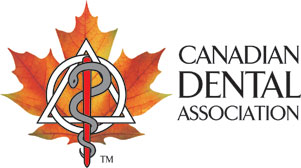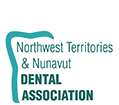Canadian dentists calling for better access to oral health care for all Canadians
Ottawa - Canadian Dental Association (CDA) is taking part in the Assembly of First Nations (AFN) Annual General Assembly on July 20-22, 2010 in Winnipeg, Manitoba. CDA’s goal is to join First Nations leaders in advocating on behalf of the First Nations people for better access to oral health care.
First Nations people experience much higher rates of dental disease than other Canadians. Cavity rates are four to five times higher and periodontal (or gum) diseases are widespread. Rampant oral disease negatively impacts on quality of life in areas such as education, employment and nutrition. Additionally, the disease cycle of gum diseases can be an exacerbating factor in diabetes control - a significant health issue for this population.
“First Nations and Inuit should have equal ease of access to oral health care as other Canadians,” said Dr. Ron G. Smith, President of the Canadian Dental Association. “Together with like-minded organizations and the government, it is up to us to facilitate that access and to remove obstacles preventing this population from experiencing good oral health.”
The federal government plays an integral role in the delivery of oral health care to First Nations and Inuit through the dental portion of the Non-Insured Health Benefits (NIHB) program of the First Nations and Inuit Health Branch (FNIHB) of Health Canada.
The Canadian Dental Association recommends that the federal government undertake a complete review of the dental portion of the NIHB program in cooperation with the Assembly of First Nations, the Inuit Tapiriit Kanatami, and CDA.
Facts:
- Important program improvements were introduced in 2005 including the removal of the basic care threshold, easing access to root canal therapy on front teeth, and acceptance of the Standard Dental Claim form. CDA continues to work with Health Canada advocating for further basic improvements to the program including root canal therapy for all teeth.
- Current NIHB Dental Plan utilization rates hover around 35% and the population is growing. By comparison, 75% of other Canadians visit the dentist annually.
- The Canadian Dental Association has written a position paper on access to oral health care for Canadians with a section and specific recommendations dealing with Aboriginal people (see links below).
The CDA supports the following:
- Improving the Childrens’ Oral Health Initiative (COHI) by increasing the number of dental workers on reserves.
- Fluoridation of water on reserves and in other Aboriginal communities.
- Developing programs to attract Aboriginal peoples to dental professions.
- Creating and supporting educational programs to promote culturally appropriate prevention of oral disease and tooth loss at all stages of life.
To read the CDA Access to care position statement and paper, please go to:
CDA Position on Access to Oral Health Care for Canadians
Position Paper on Access to Oral Health Care for Canadians
About CDA
The Canadian Dental Association (CDA) is the national voice for dentistry, dedicated to the advancement and leadership of a unified profession and to the promotion of optimal oral health, an essential component of general health. Visit www.cda-adc.ca
About AFN
The Assembly of First Nations is the national organization representing First Nations citizens in Canada. The AFN represents all citizens regardless of age, gender or place of residence. For more information about the AFN, see www.afn.ca
CDA Contact:
613-520-5013
media@cda-adc.ca
www.cda-adc.ca











